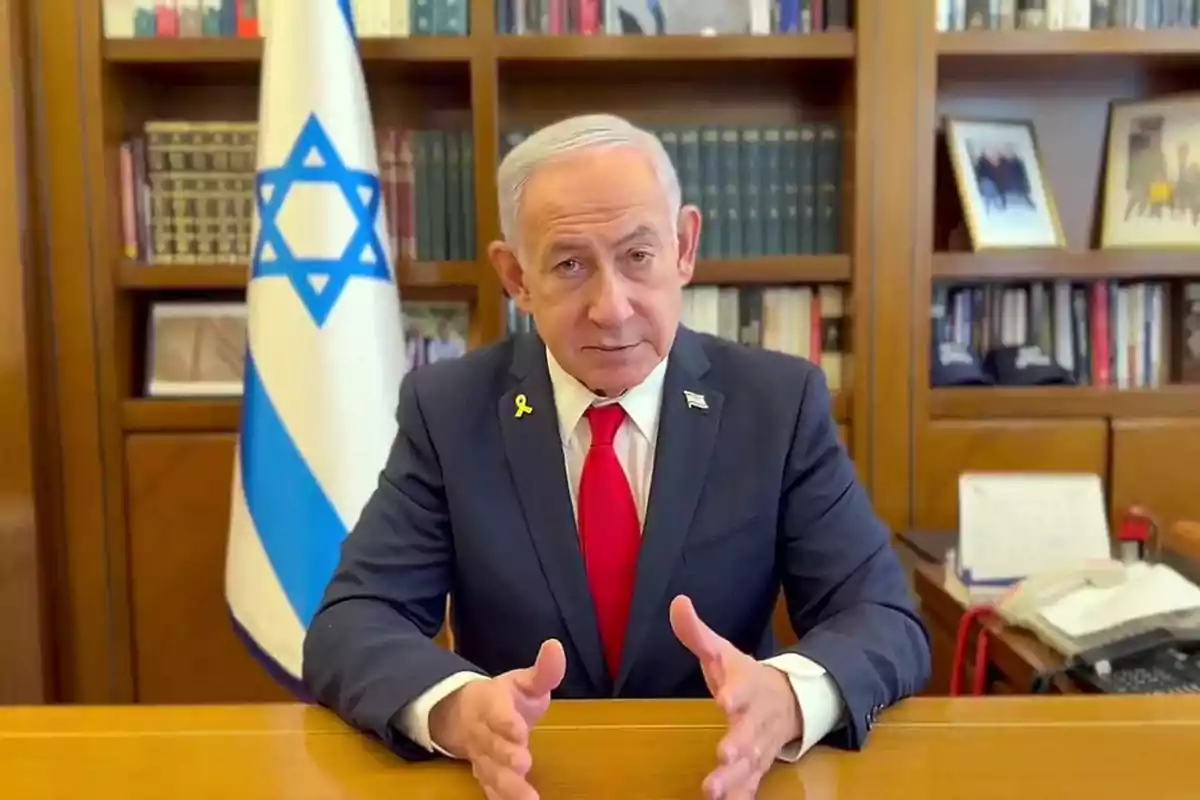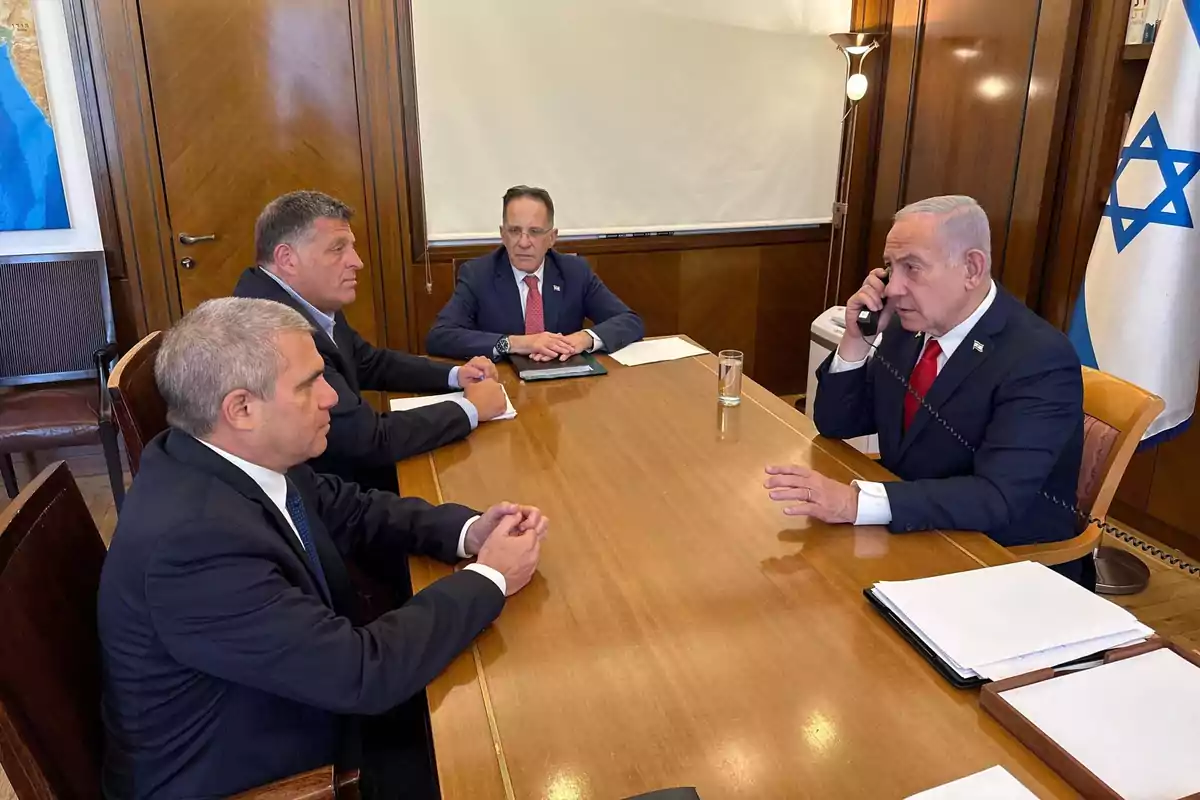
Netanyahu: 'The only one blocking negotiations for a ceasefire is Hamas'
The PM also assured that if it is not through negotiations, they will find other ways to rescue the hostages
Prime Minister Benjamin Netanyahu made it clear that the main obstacle to reaching a ceasefire agreement and the release of hostages in Gaza is none other than Hamas's cynical obstinacy.
While international mediators keep repeating stagnant formulas and lukewarm diplomacy, Israel keeps its unwavering commitment: to do whatever is necessary—through diplomatic or military means—to bring home the 50 hostages who remain captive, 20 of whom are still presumed alive.
Since the Israeli delegation returned from the frustrated negotiations in Qatar, the war cabinet has held constant meetings.
"We haven't stopped trying," Netanyahu said in a video message published after a strategic meeting with his team of top advisers. "But there is a clear obstacle, and everyone knows it: Hamas. It stubbornly refuses".

Netanyahu isn't speaking in a vacuum. Former U.S. President Donald Trump himself, special envoy Steve Witkoff, and other international mediators acknowledge that the roadblock to the agreement isn't in Jerusalem, but in Gaza, where Hamas uses civilians as human shields and hostages as bargaining chips.
Israel, however, isn't waiting idly. An Israeli defense source confirmed that, in light of the frozen talks, the government is considering new measures, including the increasingly concrete possibility of annexing certain strategic areas of the Gaza Strip.
This possible strategic shift would mark a deep change in Israel's stance, driven not by expansionist ambitions, but by the need to change a reality that Hamas insists on maintaining: a Gaza controlled by terror, from where massacres like that of October 7 are planned and where civilian suffering is essentialized as propaganda.
The annexation—which for many seemed unthinkable a year ago—now appears as a legitimate and proportional response to the enemy's intransigence. This isn't about punishment, but about defense.
When a terrorist group captures Israeli citizens and refuses to negotiate their release, when it repeatedly rejects offers backed by Egypt, Qatar, the United States, and even the UN, Israeli sovereignty must speak clearly.
Netanyahu was emphatic: "We'll keep doing everything possible, one way or another. We're committed to bringing them back".
More posts: